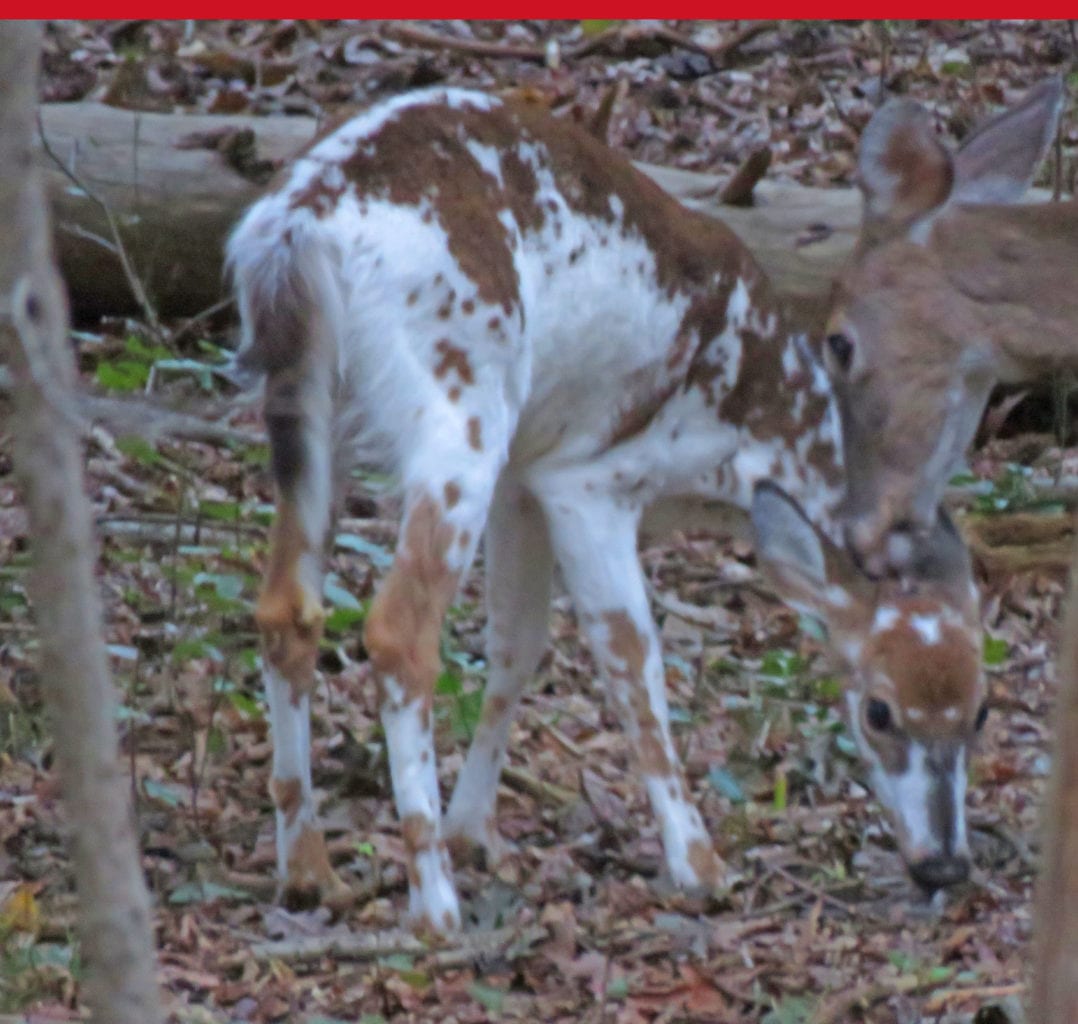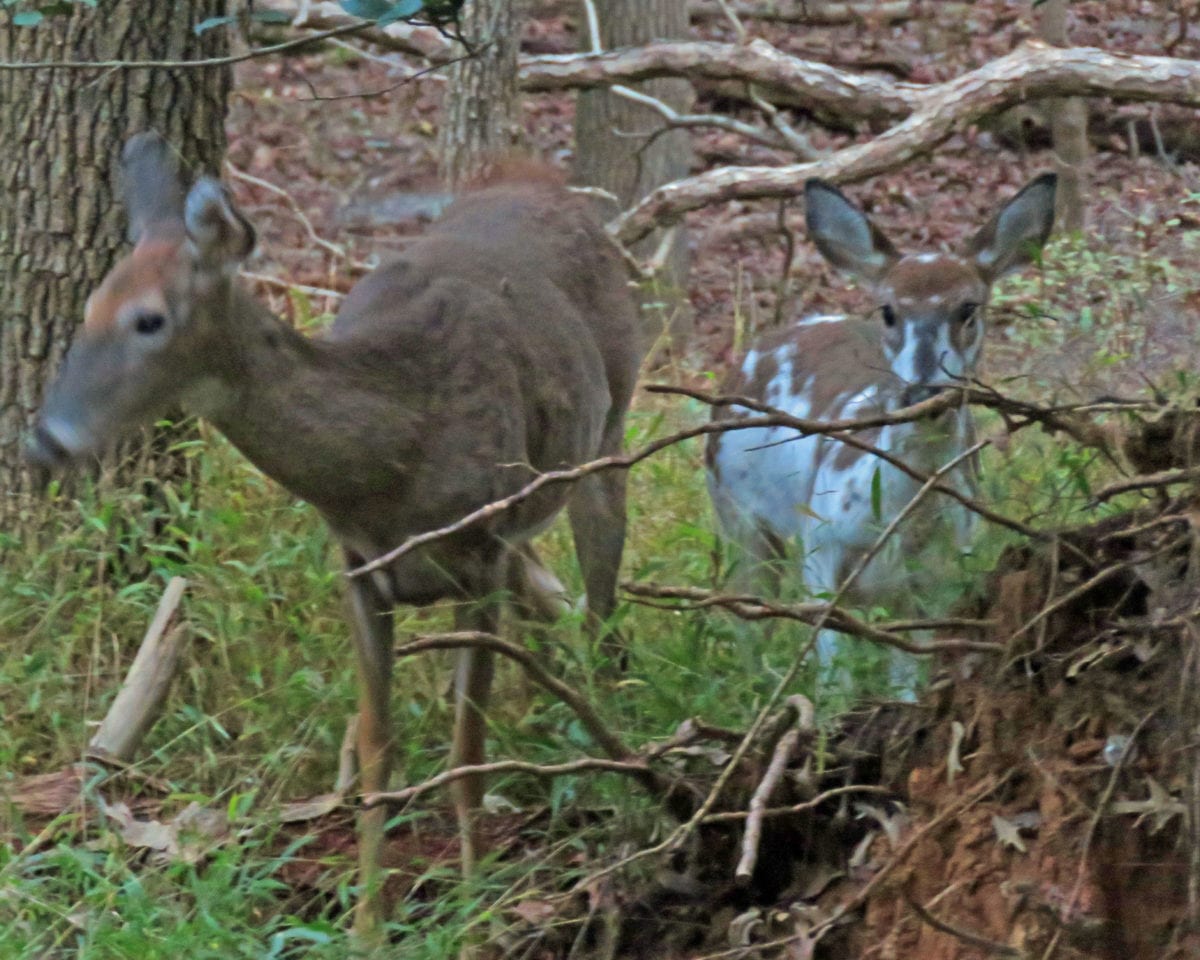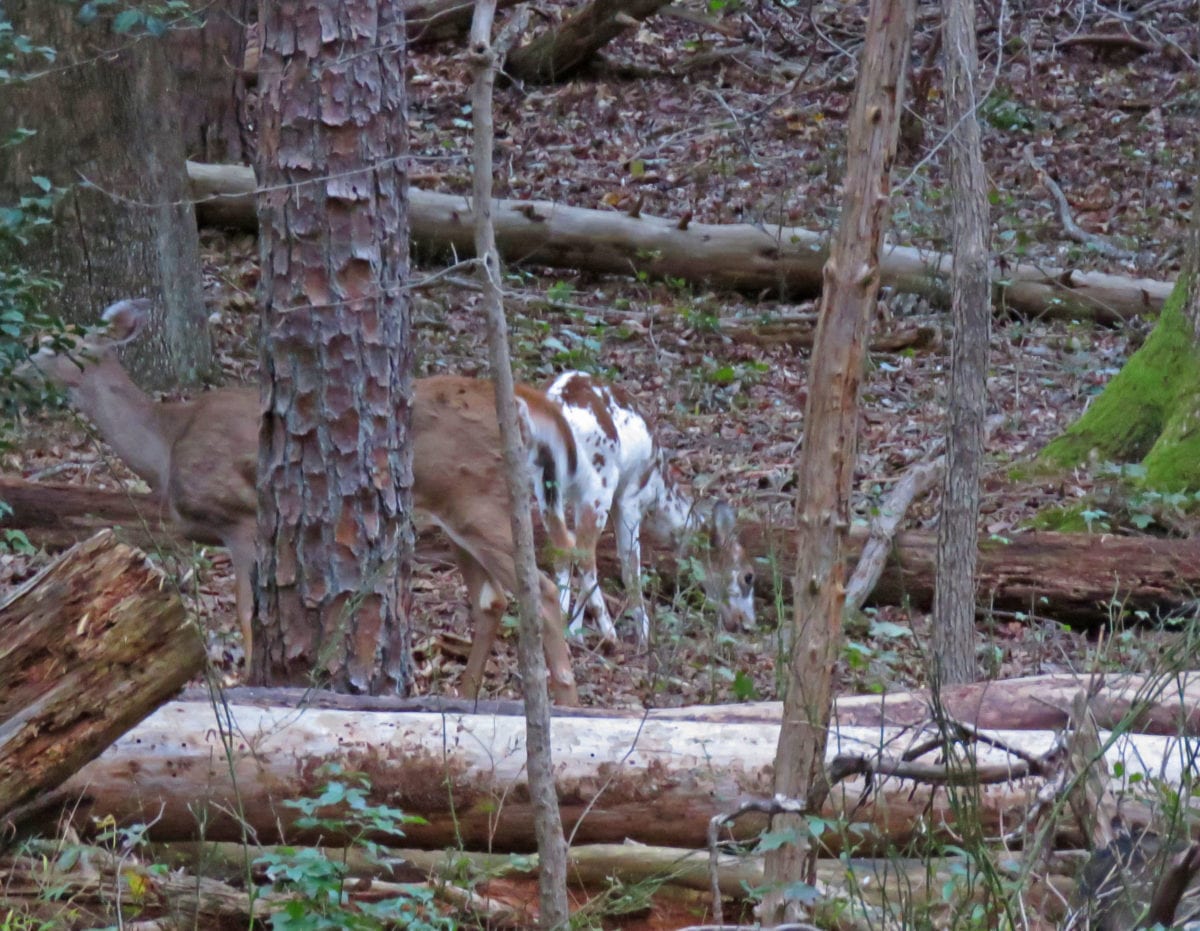Secret Vistas-
By Glynn Wilson –
WASHINGTON, D.C. – In late 2016, on the 100th anniversary of the National Park Service in the United States, a rare white fawn was born in the woods of Greenbelt National Park, where visitors come from all over the country and the world to see the the neo-classical architecture, all the monuments to American democracy and the Smithsonian museums in the nation’s capital.
Explore Washington, D.C. from Greenbelt National Park’s Campground
In some primitive cultures, the sighting of a rare white fawn or a white buffalo are taken as sacred signs of peace and hope.
To scientists, it is a sign of a genetic defect called leucism, which causes a lightening of the skin and fur. When the white pelt is flecked with the red-brown of a typical white-tailed deer, the result is called “piebald” and is found in only one percent of the species.
The rare coloration is the result of a recessive trait that can cause skeletal deformities such as short or malformed legs, a curved spine or even irregularly-shaped organs, according to Doug Adamo, the National Park Service biologist assigned to Fort Wadsworth on Staten Island’s northeastern shore, where a white fawn was spotted in 2017, according to National Geographic.
White-tailed deer are abundant in this green space between Washington and Greenbelt, Maryland, but this is the only white fawn National Park Service Rangers here can remember. While locals often visit the park in the morning or afternoon to see the abundant and nearly tamed white-tailed deer here, which are not afraid of humans because this population has never been hunted, the white fawn is so shy it is hard to spot.
Because of a sensitivity in the skin, it tends to remain in the thick underbrush during the heat of the day, and only seems to come out in the early morning or late afternoon near dusk.
I spotted the fawn last summer and fall when it was young, but was never able to get a serviceable photograph. I’ve been trying all summer and into the fall. But this past week, when the weather cooled off, I saw it twice on Monday but did not have my Cannon camera with the 1365 millimeter lens on me. It would be very hard to get a photo of this deer with an iPhone camera.
But I took the time to scout the location of the white fawn on Tuesday, which I am prohibited from revealing due to fear that someone with nefarious intent might bring harm to it. Just before dark, in a location where the fawn had been spotted by others, I managed to get a few decent shots, nothing totally sharp before it disappeared into the woods.
In the same Native American cultures where the white fawn or the rare white buffalo are considered sacred, it is alto considered bad luck to kill a piebald deer. In some states it is actually illegal. Of course the U.S. Department of the Interior prohibits hunting this population on National Park Service land.
If you decide to visit the park to try to get a glimpse of the white fawn, or the bucks, does and spotted fawns that seem to be birthed here nearly year-around, please be respectful and keep your distance. There is a fine of up to $5,000 with the potential for one year in jail for harassing or feeding the wildlife. The National Park Police are located on the premises here. You really don’t want to mess with them.
More Photos

















Those deer look pretty scrawny. The ones eating my sweet potato vines here in north Alabama look much healthier. HaHa
The white fawn is breathtaking. Thanks for not revealing it’s location, Glynn.